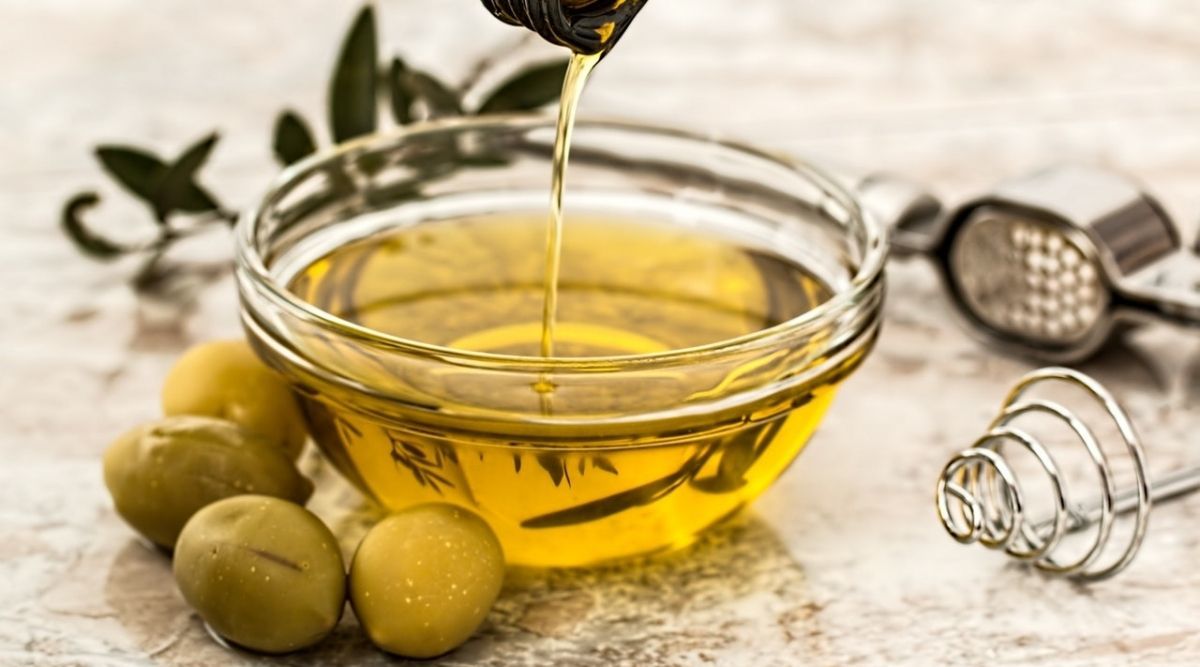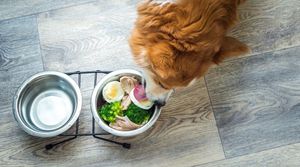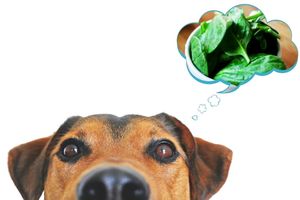Olives tend to divide people when it comes to common foods they enjoy. Some people love them, others hate them. They are a key part of many healthy human diets - especially Mediterranean diets - and are often found on all kinds of charcuterie plates and of course in martinis. But can dogs have olives? And should you be concerned if they help themselves to them?
The basic answer here is maybe. Your dog will be alright if he takes an olive that falls off the table onto the floor, and he gobbles it up. However, although olives are not poisonous to dogs, they are very rich in salt and fat and should not be fed to them on a regular basis.
Not only can excessive amounts of fat lead to weight gain that your dog almost certainly does not need, your dog is at a significantly increased risk for pancreatitis if he eats a high-fat diet. Your dog's capacity to metabolize food and nutrients will be harmed by this condition and that can, and will, impact almost every other aspect of their health.
While what's beneficial for people isn't always good for dogs when it comes to food and nutrition, olives are a snack that both of you may enjoy - in moderation.
Dogs can consume any type of olive, green, black, or any other, but there are a few things to note, and warnings to keep in mind, before you let your dog snack on them. These - and some of the other concerns pet parents might have about dogs and olives, are what we are going to take a closer look at here.
If your dog has eaten olives and he or she is acting abnormally or suffering allergy-like symptoms, be sure to call your vet, emergency clinic, or animal poison control center at (888) 426-4435 right away.
Olive Nutrition Facts
The actual nutritional content of an olive will vary slightly according to its variety and its size, but according to the FDA on average, on medium-sized olive offers:
- Calories 4.4
- Total Fat 0.4g
- Sodium 28 mg
- Dietary Fiber 0.1g
- Sugars 0g
- Protein 0g
Olives also contain trace amounts of vitamins A, C and D, but at levels that are less than 1% of the recommended daily intake for adult humans.
A glance at these FDA nutrition facts backs up the idea that olives are primarily made up of fat and salt. The fat that olives contain is usually considered a 'good' fat, at least for humans, but a dog fed a high quality food should be able to get all the good fats he needs from that.
What Types of Olives are OK for Dogs to Eat?
Did you know that there are more than 2,000 different varieties of olives grown all over the world?
Or that in addition to the standard green and black olives you might be most familiar with, you can also find pink, purple, bright yellow and even blue olives? Which of these can your dog eat?
The chances are that while there are hundreds of olive variations technically available, you'll only find a handful of different options at the grocery store. Most have the same basic nutritional makeup - there is no such thing, for example, as a low fat olive - but there is often a difference in taste.
As far as most vets and pet experts are concerned, eating any variety of olive in moderation is OK for dogs. Whether they will want to is another matter.
Some olives have a bitter taste, and dogs do not like bitter foods, something that is a throwback to the days when dogs lived alone and had to forage for their own food.
Rancid food - which is of course dangerous food - has a bitter taste, and over many generations dogs came to realize this, and avoided anything bitter purely for reasons of self-preservation, and that dislike of bitter tastes and smells is something most pampered pooches still have.
How olives are sold also varies a great deal, and this is where things get a little trickier when it comes to feeding olives to dogs.
Olives that still have pits - which is the majority of fresh olives you will find in the produce section - can pose a choking hazard, especially for smaller dogs, and olives in brine are very, very salty and will add even more sodium that your dog does need to his diet.
If you are considering feeding your dog an olive or two off your pizza, or from your antipasto, do so with caution.
Usually these are coated in all kinds of herbs and spices that should not be given to your dog, so if you are going to offer your dog an olive, make it a plain one.
Why is Too Much Sodium Bad For Dogs?
We've mentioned several times that olives are high in sodium, and that's not great for dogs. But why is that?
Dogs of all ages, sizes and breeds can fall victim to a condition called sodium ion poisoning if they are fed too much salt. This potentially dangerous health condition can lead to seizures and, in serious cases, organ failure and even death. They would have to be given a lot of sodium for this to happen, but for a smaller dog, a lot may be less than you think.
Signs that your dog has eaten too much sodium include:
- vomiting
- diarrhea
- anxiety
- tremors
- high fever
- seizures
- and, of course, extreme thirst.
As these symptoms can also be signs of a number of other serious health conditions, you should consult with your vet as soon as possible.
How much sodium is OK for a dog to consume?
Salt is actually required for cell function in dogs, and a healthy dose is between 0.25g and 1.5g per 100g of food. Salt isn't harmful to dogs at these levels, since it aids cellular activities like fluid balance and nerve impulse transmission.
However, this should also help you see how the 28g of sodium a single olive contains could quickly lead to your dog consuming too much salt if they are allowed to eat more than one or two.
How to Feed Olives to Dogs?
Dogs don't need to be fed olives at all. However, if you want to do so you should stick to the occasional fresh, pitted olive as a treat.
If, for example, you are making a salad that will contain olives, if you are making use of fresh, pitted olives it's fine to toss him one or two.
Whether he will want them, or prefer one of his healthy dog snacks instead, will be up to him.
Is Olive Oil Good for Dogs?

Aside from their use in cooking and as a garnish, olives are the primary component of olive oil. Humans are often encouraged to choose olive oil over most other types of cooking oil, as it is a healthier alternative to corn or vegetable oils.
But is olive oil good for dogs?
Healthy fats and antioxidants are plentiful in olive oil, especially the higher quality extra virgin olive oil. This means that the same olive oil that is beneficial for your health can also be good for your dog.
Olive oil's substantial health advantages for humans have been thoroughly documented, and it's believed that for the most part they can apply to dogs too. It's been said to help with everything from reducing your cancer risk and cardiovascular disease prevention to joint mobility and vascular health, as well as boosting coat and skin health in dogs.
However, they do not require a large amount of it. Some pet parents drizzle a very small amount (about a 1/4 teaspoon) on their dog's dry food, something that can tempt a fussy eater to eat their food as well as offering them a potential health boost.
Unlike humans, who can get a lot of benefit from an olive oil hair treatment, however you should not apply olive oil directly to their skin and coat in an attempt to get it shinier, as dogs will simply lick it all off, probably ingesting far too much in the process. They will gain the same benefits if a smaller amount is added to their food.




